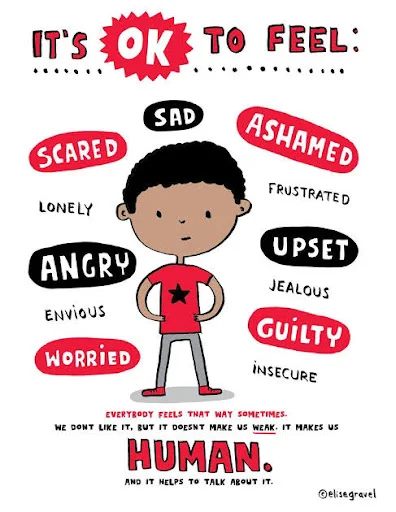10 Steps to Enjoy Life Again and Break Free from Guilt
I understand how overwhelming and paralyzing guilt can be. Everyone deserves a fulfilling life, and if you’ve been struggling with excessive guilt and can't shake it off, I’m here to help. Here are some effective strategies to help you manage and overcome it.
1. Let Go of Some Control
Taking control of everything can lead to excessive guilt when things don’t go as planned. To move past this, relinquish some control. Understand that you can’t dictate every outcome.
Like for example If you always take charge of family gatherings and feel guilty when things don’t go perfectly, delegate some tasks to others. Allow them to help with planning and execution. This will reduce your stress and help you realize that not everything is your responsibility.
2. Stop Blaming Yourself
If things go wrong, you might instinctively blame yourself. This is common among those who feel guilty. You often find ways to make it your fault, no matter the situation.
Take for instance, If a project at work fails, instead of immediately blaming yourself, consider other factors that contributed to the failure, like market conditions or team dynamics. Recognize that many elements were out of your control.
3. Look at the Facts
Instead of dwelling on your feelings, examine the facts. Distance yourself from the situation and assess it objectively. What exactly caused things to go wrong?
Take for example, If you had an argument with a friend and feel guilty, write down what happened from an outsider's perspective. Consider both sides and identify the real causes. This helps you see the situation more clearly and not just from an emotional standpoint.
4. Talk to Someone
Bottling up your feelings is never a good idea. If you’re feeling guilty about something, especially if it involves someone close to you, talk to them.
Like for example, If you feel guilty about forgetting a friend’s birthday, call or meet them to apologize. You might find that they weren’t as upset as you thought, and discussing it can clear up misunderstandings and ease your guilt.
5. Remember That You’re Not Responsible for Others
To stop feeling guilty, remember that your decisions are yours, and others’ decisions are theirs. People who feel guilty often take on the responsibility for others’ actions, which isn’t their burden to bear. If you do this, work on letting go.
Like for instance, If a colleague makes a mistake at work, don’t take the blame if it wasn’t your fault. Understand that they are responsible for their actions, and you should not feel guilty for their errors.
6. Look at it From Another Perspective
Consider the situation from the other person’s point of view. Would you still blame yourself if the roles were reversed? If not, then you shouldn’t feel guilty.
Eg: If you accidentally cancel plans with a friend due to an emergency, think about how you would feel if they did the same to you. If you would understand their situation, then give yourself the same compassion and don't feel guilty.
7. Look Deeper at the Situation
You might not actually be feeling guilt but rather other emotions like resentment, dread, or anxiety. Sometimes, guilt is a default emotion that helps you cope.
If you feel guilty about not visiting your parents often, examine if it’s truly guilt or perhaps anxiety about family expectations. Understanding the underlying emotion can help you address it more effectively.
8. Ask Yourself What You Can Do About the Situation
To stop feeling guilty, think about what actions you can take instead of dwelling on your guilt. People who feel guilty easily often fail to take action.
If you feel guilty about not exercising regularly, instead of just feeling bad, make a plan to incorporate short, manageable workouts into your routine. Taking action can reduce feelings of guilt.
9. Focus on Your Own Needs
You can’t prioritize everyone else all the time. Your feelings are important too. Those who feel excessively guilty are often very empathetic, taking on others’ emotions.
Look for instance, If you constantly feel guilty about not spending enough time with family because of work, ensure you allocate time for self-care and activities that make you happy. Balance is crucial for your well-being.
10. Remember That It’s Okay to Feel Guilty Sometimes
It’s normal to feel guilty occasionally. The issue arises when guilt becomes overwhelming and constant.
If you miss a friend’s important event due to unforeseen circumstances, it’s okay to feel guilty initially. Acknowledge your feelings, apologize, and then let go. Understand that occasional guilt is part of being human.
Guilt Shouldn’t Be a Persistent Shadow Over Your Life
Living with constant guilt is exhausting and harmful to your mental and emotional health. It’s important to recognize that while guilt is a normal emotion, it shouldn’t dominate your life.
If you’re frequently feeling guilty, it’s essential to take steps to address it. These tips are designed to help you move towards a healthier, guilt-free life. Remember, overcoming chronic guilt involves understanding, accepting, and constructively redirecting this emotion.
Liked what you just read? Follow me on Facebook.










.jpeg)



Comments